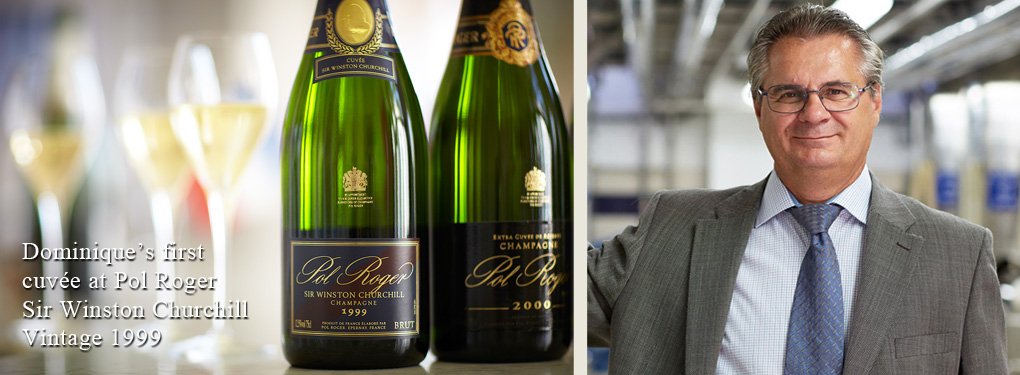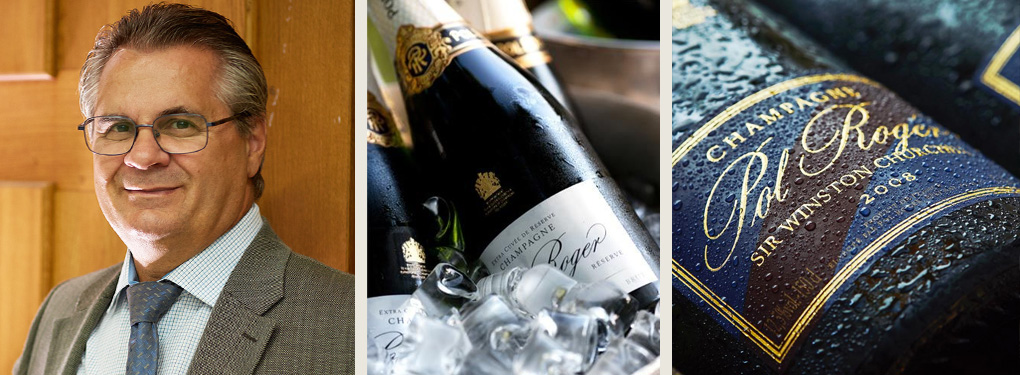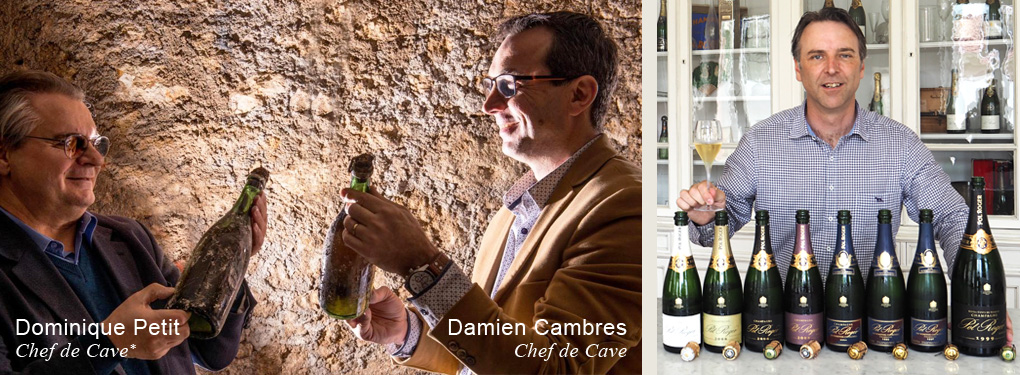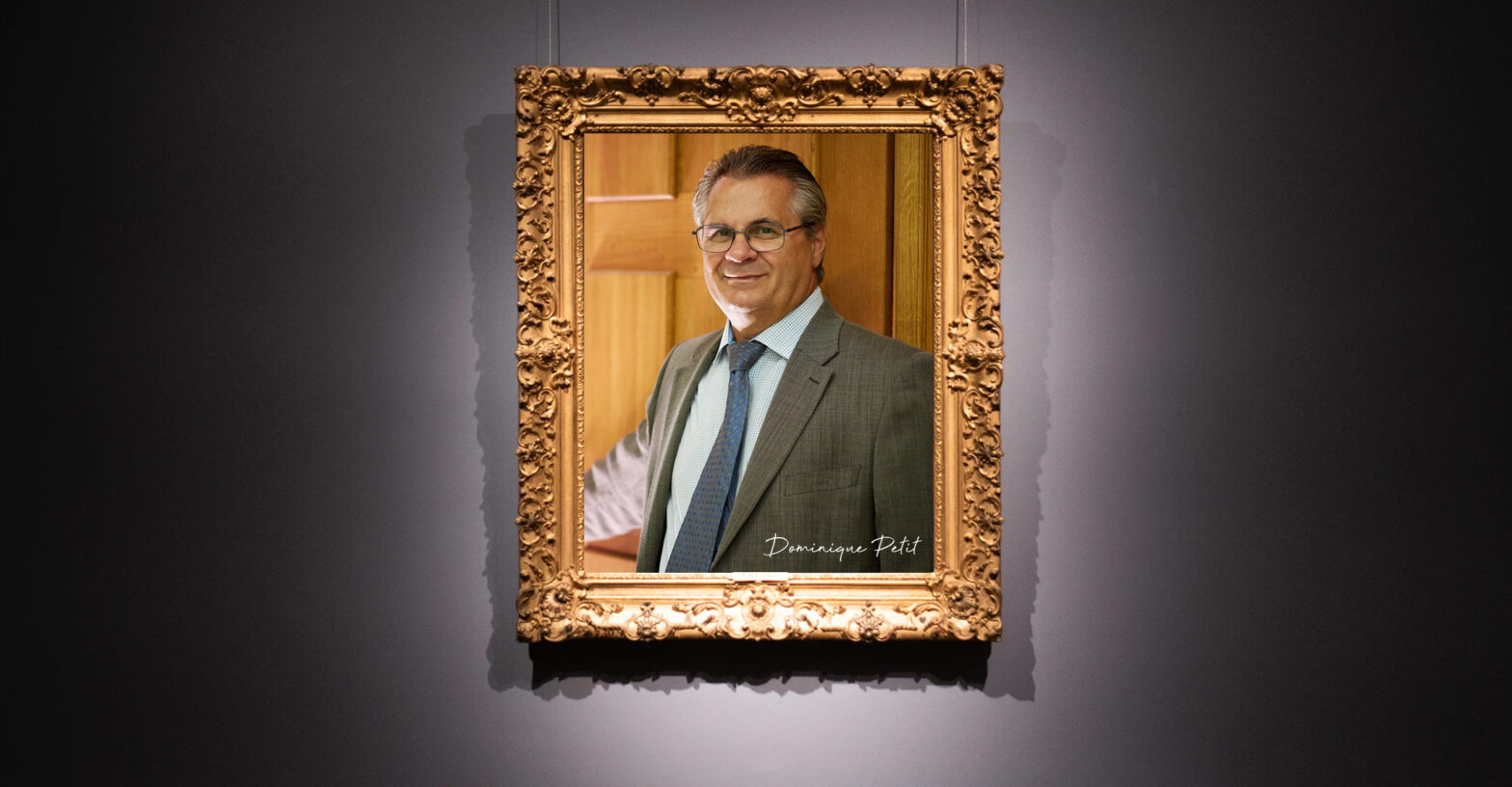Dominique Petit - Winemaker Series:
1999 was the first vintage vinified by Dominique Petit for the Champagne House of Pol Roger, as Dominique had formerly been at Krug, where he worked for over 20 years. This experience and craftsmanship brought a controlled sense of power and concentration to the new cuvée’s. Though an important character that has not been reduced is the supreme elegance and harmony for which Pol Roger is famous, the wine demonstrating an almost symphonic elegance due to the extended time in their most sought after cellars.
Chef de Caves Dominique Petit believes that great Champagne is all about the fruit. Pol Roger owns over 85 hectares of vineyards, which supply some 50% of the fruit required for annual production of around 1.6 up to 1.8 million bottles.
Careful attention in the vineyard is matched by meticulous care in the winery and cellars. Four ‘remuageurs’ hand riddle an astonishing 50,000 to 60,000 bottles per day in Pol Roger’s vast network of chalk cellars underneath rue de Champagne in Epernay.
Since Dominique Petit joined Pol Roger, more than 9 million Euros has been invested in upgrading the winemaking facilities, and has continued in several key areas. I remember when I visited Pol Roger back in 2010, there was an amazing energy around the company and a great deal of activity, with new custom-made cold settling and fermentation tanks being installed, six new tiny 2200L tanks, and the old concrete tanks being upgraded, the cellar extended and the cellar floors concreted to reduce vibrations. Since then a great deal has continued to develop and another exciting structural project will break ground in *2019-20.
Dominique Petit is regarded as one of the most articulate winemakers in Champagne and even though he retired in March 2018 - *(passing on the 'chef de cave' chapeau to Damien Cambres) - he has been an excellent addition to the family, continuing the high standards set by Pol Roger over the past 169 years and to craft sophisticated though elegant Champagnes from the sites they work. This attention to quality paid off in 2019 when Pol Roger was named the 'World’s Most Admired Champagne Brand' - voted for and published in Drinks International magazine.
Even though Dominique is enjoying his retirement - here are some of his thoughts on the industry he contributed so much.
• What first attracted you to the wine industry and as a winemaker?
"I come from a family of winemakers; so I discovered winemaking at an early age – though it was at the age of 16 that I naturally chose to do studies to become a winemaker..."
• When and where did you study winemaking?
My Oenology studies were made at:
Beaune Wine College in 1970 / 1971
Then the Wine College of Avize from 1971 to 1973
Then finally at the Faculty of Science in Reims from 1973 to 1977.
• Which person has influenced you the most as a winemaker and why?
"Professor Michel Feuillat was undoubtedly the person who most influenced us as winemakers (I say us - because my colleagues at the time have all done well). Michel Feuillat, a great wine and great science teacher knew how to discover the different ways of winemaking that might arise (depending on the case) when we were students..."

• What was your favourite grape varietal(s) to work with and why?
"These grape varieties would be Chardonnay, Pinot Meunier and Pinot Noir. These are the three Champagne grape varieties I work with; I cannot separate or rank them, because they each have their own unique quality, and their interest in our assemblages..."
• With the above in mind, is there a grape varietal you are looking at as the future of Champagne...?
"It would be Chardonnay and Pinot Noir; removing the Pinot Meunier grapes more rustic notes with aromas that may be much less interesting with global warming - (which would be valid for Meunier in Champagne)..."
• With each new vintage what did you most look forward too?
"There is an expectation: during the tastings, the wines are a discovery, namely those that are maturing and we try to foresee their future conditions..."
• To date what has been your most interesting / challenging vintage and why?
"The 1979 vintage was the first vintage of my professional career. Maturity was spectacular with a purity that was extraordinarily beautiful. The wines were all without exception wonderful, and the few remaining examples in the cellars are still the same..."
• Which person ‘past’ or ‘present’ would you most like to meet and why?
"I would have liked to meet one of the forerunners of wine who practiced this science before the word was invented. We owe them all the foundations of wine that are always true, and we must not forget that the means at their disposal were rudimentary. I will name ‘Pasteur’, keeping a thought for Francois, Maumene, Chaptal and others..."

• If you were stranded on a desert island and you could take one bottle of wine with you - what would it be and why?
"He replies with a smile: Champagne ‘of course’ rather a magnum: by nature, a bottle of Champagne to be enjoyed in full after it opened, which would thus require to keep it until help arrives, with the further advantage of keeping the morale maintaining the hope of their arrival (to be recovered or the magnum?: no answer)..."
• If you could have made wine anywhere else in the world - where would it be and why?
"I think in Chile; because I had the opportunity to visit this beautiful country, most of the natural barriers to pests and diseases formed by the Pacific Ocean and the Andes, provide a culture of more 'rational'. This could also be New Zealand or Australia, but I have not had a chance to visit..., so I don’t have a preference as yet for this part of the world..."
• What advice would you give a young person starting out as a winemaker?
"I would advise them to enjoy the offering available to be 'young' - to discover the most from French wine regions and foreign, that is offered by internships and contracts that are proposed by winemaking..."
• If you hadn’t been a winemaker - what would you have liked to be and why?
"I have always seen myself as a winemaker - my core passion because I'm from a winemaking family, time spent on a modest farm. This is a tough job physically - though wonderful rewarding for anyone who are dedicated…"
• In the future, what changes can you see, or would like to see for Champagne...?
"I do not want to see dramatic changes in our wines or styles. Though, it is likely that global warming will force growers and winemakers to adapt precisely to preserve the style of wines, and this will be their challenge. For example, in the first place, there will certainly be a need to manage a hot harvest and there you must choose the appropriate means to limit the minimum impact on the wines and their styles..."

Where can you find Pol Roger Champagne:
Pol Roger Champagne's 'sophisticated simplicity' are available in New Zealand and around the world from quality wine retailers, restaurants / wine bars and hotels. Or visit the Pol Roger website - CLICK HERE.
